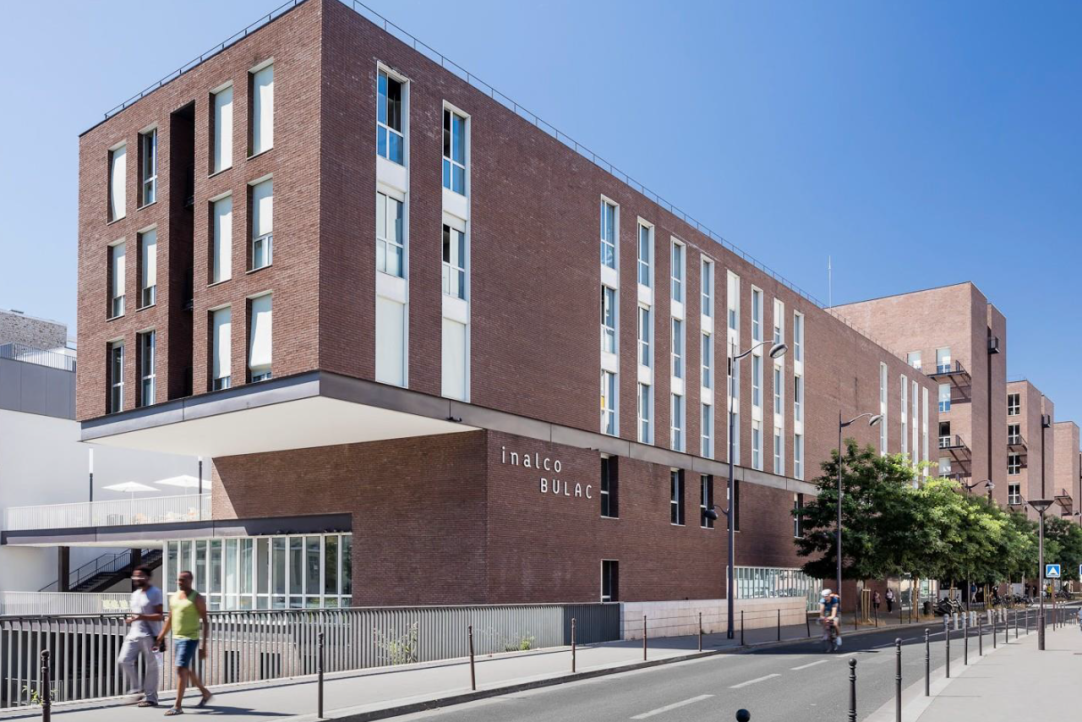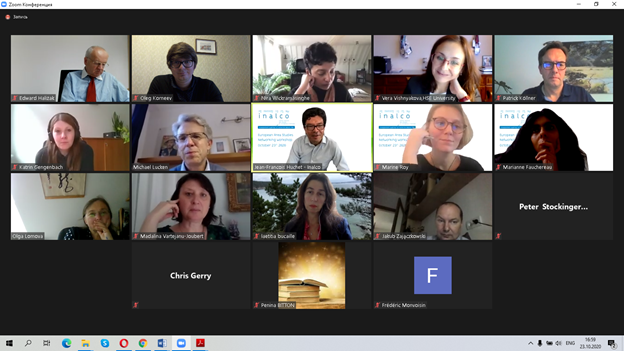Higher School of Economics Professors Exchanged Experience in Teaching Area Studies with Partners from the European Area Studies Network
Oleg Korneev, Academic Supervisor of the Programme “Comparative Politics of Eurasia”, represented Higher School of Economics is Saint Petersburg with a presentation.

On 23 October 2020, the French National Institute of Oriental Languages and Civilisations (INALCO) hosted the second workshop of the European Area Studies Network launched earlier this year at the initiative of the Oxford School of Global and Area Studies (University of Oxford). This second workshop was devoted to exchanging experience on teaching Area Studies across universities that are part of the network. The workshop gathered academics from University of Oxford, INALCO (Paris), Free University of Berlin, University of Warsaw, Higher School of Economics, Charles University (Prague), School for Advanced Studies in the Social Sciences (EHESS, Paris), GIGA Institute for Asian Studies (Hamburg) and University of Leiden. Higher School of Economics was represented by Vera Vishnyakova, Head of the School of International Regional Studies (Moscow) and Oleg Korneev, Academic Supervisor of the MA Programme “Comparative Politics of Eurasia” (St. Petersburg).
Participants focused on experience, challenges and opportunities for development of area studies. Professor Verena Blechinger-Talcott, Speaker of the Board of the Centre for Area Studies at the Free University of Berlin, underlined that cooperation between disciplines and area studies requires constant re-negotiation and self-reflection on both sides. In her opinion, this is particularly important to deal with current hierarchies between theory-driven and empirical approaches, including Eurocentrism of the former, whereas field work encounters are not always compatible with theoretical expectations. Professor Blechinger-Talcott emphasized increasing importance of trans-regional questions and approaches as well as international research networks, both within the studied region and with area related research institutions globally as core conditions for development of area studies.

Professor Timothy J. Power, Head of the Oxford School of Global and Area Studies, in his joint presentation with Professor Christopher Gerry, Director of Russian and East European Studies at the University of Oxford, explained how an interdisciplinary approach to area studies is being developed within their School hosting a vibrant research community. Current MPhil and MSc programmes are delivered through seven area based centres. New MPhil in Global and Area Studies will open in 2021 and will function as Comparative Area Studies programme drawing on the multidisciplinary and area expertise of the School’s regional centres and facilitating an interdisciplinary approach to comparative critical studies across two or more regions of the world.
Oleg Korneev addressed a number of beliefs prominent among defenders of unnecessarily rigid disciplinary standards sometimes portraying area studies as a subordinate and subaltern field of knowledge. He discussed how conventional ways to see and teach area studies often secluded within disciplinary, methodological and ideological boundaries can be transformed through research-informed teaching and described how this approach is practiced across various educational programmes at the Higher School of Economics in St. Petersburg, with special focus on the “Post-Soviet Area Studies” track within the MA Programme “Comparative Politics of Eurasia”.
The concluding discussion led by Professor Jean-François Huchet, President of INALCO, focused on opportunities of transversal work in area studies both within humanities and social sciences. Professor Peter Stockinger, Vice-President of INALCO, suggested that transversal approaches privileging themes rather than disciplines are important and should be further fostered in four dimensions: issues, methodologies, practical/societal relevance and pedagogical activities. Professor Nira Wickramasinghe from the Leiden University Institute for Area Studies (LIAS) suggested to mainstream the “Global Thought” agenda drawing on social and political theories that come from areas and places that we are studying. Professor Patrick Koellner, Director of the GIGA Institute for Asian Studies drew attention to societal importance of area studies confirmed by recent developments in Germany where both the German Ministry of Foreign Affairs and the Volkswagen Foundation have engaged in massive promotion and support of area studies.
Workshop participants have agreed to use these reflections as guidance for further common work, in particular with a view to produce relevant and still missing teaching tools and materials, organise tailor-made seminars for PhD students and develop educational partnerships. HSE is ready to host one of the future network workshops. HSE St. Petersburg would welcome applications for support of joint online courses from network participants and broader institutional cooperation initiatives from universities of the network. Such courses and other forms of cooperation would enrich the research-oriented curricula of BA and MA programmes proposed by St. Petersburg School of Social Sciences and Area Studies.

